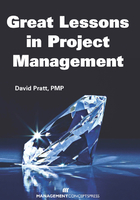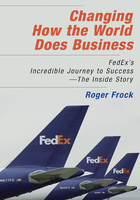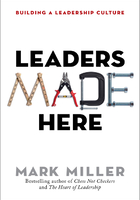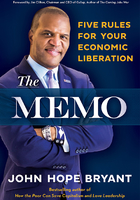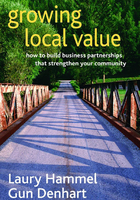The Social Imperative
On November 10, 2004, the fiancée of an employee at video game maker Electronic Arts (EA) posted a blog entry. It was an anonymous, emotional essay published at a free blogging site. And it transformed the video game industry.
In her nearly 2,000-word essay titled “EA: The Human Story,” the author, who referred to herself as “ea_spouse,” spoke in personal terms about the toll long work weeks were taking on her fiancé and herself.[1] At first, she explained, her fiancé's project team was expected to work eight hours a day, six days a week. Then twelve hours a day, six days a week. Then eventually extended hours for seven days a week. “The love of my life comes home late at night complaining of a headache that will not go away and a chronically upset stomach, and my happy supportive smile is running out,” she wrote. She also argued that routine weeks of 85 hours on the job without overtime pay by game developers were illegal, ill conceived, and the product of corporate greed.
In another era, her essay might have been the sort of complaint shared merely with family and friends. Or perhaps, if she was particularly determined, she might have sent it to mainstream media outlets or a labor attorney with the hope that a sympathetic journalist or lawyer would take up her case.
Instead, she published her tale on LiveJournal.com, one of a number of Internet sites allowing anyone to start a Web log for free. And despite her anonymity, despite her lack of legal backing or traditional media distribution powers, ea_spouse set off a firestorm. Within weeks, the blog item had generated more than 2,000 comments.[2] It ricocheted across the Web and prompted mainstream media coverage. To her own surprise, ea_spouse's essay triggered industry-wide soul searching about work hours. It also helped bring about major management reforms at Electronic Arts.
“Truly, the power of the Internet is astounding,” ea_spouse wrote on her blog in mid-December 2004, “and all other things aside, we live in a positive age when so much information can be shared so easily and quickly.”[3]
She might have added, “And with such major implications for firms.” Her essay and its impact highlight the way people increasingly are expressing their opinions and experiences in public and how this culture of disclosure and participation is pushing companies to become more worthy.
The rise in public expression and interactivity is one of several social forces prompting companies to ramp up their worthiness. Other factors are a growing sense of global solidarity, continued environmental concerns, and the arrival of the Millennial generation. This chapter examines each of these.
Disclosure Culture
In the past decade or so, people have begun disclosing aspects of their experience as never before. They are documenting their daily lives, emotions, observations, and opinions through public venues such as blogs, Twitter, YouTube, and Facebook pages. The number of active Facebook users, for example, jumped from 12 million in late 2006 to more than 500 million in early 2011. Half of those users log on to the site on any given day.[4]
Much of the self-expression spills over into people's experiences as workers, consumers, and investors. Facebook has page after page devoted to businesses, some of which are created by employees and consumers.
This growing publication of the personal is fueled and made forceful by emerging social media technologies. Blogging sites like LiveJournal.com and social networking sites like Facebook make it easy for people to start online journals and discussion groups, contributing either named or anonymous entries. And the interactive, viral nature of these Web 2.0 tools—where people can comment on postings and pass links to the content to their network of friends and contacts—helps explain why the anonymous lament about working conditions at Electronic Arts elicited so many comments.[5]
Related to the upsurge in public autobiography is a rise in online involvement more generally. Through the Internet, many people are becoming more participatory as consumers, citizens, investors, and employees. They are joining conversations about the strengths and weaknesses of products and services, stocks, and employers.
Time magazine captured the emergence of “user-generated content” and the democratization of media by naming its 2006 person of the year “You.”
It's a story about community and collaboration on a scale never seen before. It's about the cosmic compendium of knowledge Wikipedia and the million-channel people's network YouTube and the online metropolis MySpace. It's about the many wresting power from the few and helping one another for nothing and how that will not only change the world, but also change the way the world changes.[6]
In this world, individuals have the power to call attention to business successes and shortcomings as never before. And they are. As mentioned in Chapter 2, they are using the site Glassdoor.com to assess employers. They are praising and panning stocks at Yahoo Finance. They are tapping Yelp to post reviews of restaurants, pet services, and dentists.
Yelp depends on people submitting unpaid assessments of local businesses. With a motto of “Real People. Real Reviews,” the site has generated more than 15 million reviews since it was founded in 2004. And Yelp is popular. More than 41 million people visited it during a single month in 2010.[7]
Yelp's success speaks to a trend running parallel with the culture of interactivity: a hunger for authenticity. This can be seen partly in the rise of “reality” TV programming. Despite some contrived situations, the shows depict everyday people in struggles to lose weight, parent better, or handle tough jobs. And in the wake of scandals ranging from Enron to misleading evidence about nuclear weapons in Iraq to gargantuan CEO pay, the public is wary of traditional authority figures and their platitudes. In Edelman's 2010 trust study, respondents were more likely to trust information about a company from “a person like yourself” than from a CEO.[8]
The authentic nature of the ea_spouse essay—the way it combined principled criticism of the company with the particulars of her own story—may help explain why it served as a flashpoint for the video game field. Her indignation hit a high point as she addressed EA CEO Larry Probst directly:
Larry: you do realize what you're doing to your people, right? And you do realize that they ARE people, with physical limits, emotional lives, and families, right? Voices and talents and senses of humor and all that? That when you keep our husbands and wives and children in the office for ninety hours a week, sending them home exhausted and numb and frustrated with their lives, it's not just them you're hurting, but everyone around them, everyone who loves them?
Many of the ensuing comments spoke about excessive hours as a wider problem in the still-maturing video game field. “White-collar slavery is alive and well in the games industry,” one anonymous responder wrote.[9]
In the wake of her essay, Electronic Arts admitted a problem of long hours. It started a project to “lessen the number of late-in-the-process changes, fire drills and crunches.” Soon thereafter, while facing at least one lawsuit claiming unpaid overtime wages, the company also said it would make some employees eligible for overtime pay but not offer those workers bonuses or stock options.[10]
As EA discovered, companies operating in an age of disclosure and interactivity face growing pressure to be genuine, honest, and good throughout. While nobody expects organizations to be perfect, troubles increasingly are exposed by stakeholders today. Companies will have to minimize or fix problems like cynical work cultures, faulty products, and misleading leaders. Firms also need to pay attention to how employees, customers, investors, and others are talking about them online, and to engage in those informal conversations.
Skeptics of this conclusion might argue that all the expression, autobiography, and interactivity these days amounts to narcissistic noise. To be sure, much of what is written by people online is crass, inarticulate, and uninformed. But, as discussed in Chapter 2, today's technologies help to generate average ratings of companies and to highlight particularly strong praise and criticism. As a result, the personal publication trend is amplifying the power of would-be whistle-blowers. What might have required a lawsuit or outreach to a newspaper or television station 20 years ago now can take the form of an anonymous posting about problems at a company.
Also, as mentioned earlier, much of what is posted online at sites like Facebook, MySpace, and Twitter remains there for an indefinite period. The blog entries, comments, photos, and videos are visible to job candidates, employees, customers, investors, journalists, government officials, plaintiff's attorneys, and others.
Even as late as 2010, people continued to comment on the original ea_spouse essay. Among the most recent of the responses were posts that criticized Electronic Arts.[11] One, from an anonymous commenter in 2009, offered further evidence that people publishing their experiences and opinions online pressures companies to be good: “I dislike the money churning practices of EA anyway but to hear firsthand how they achieve this is unforgivable. Rest assured that when I go into the industry (and I intend to) I will steer clear of Electronic Arts!”[12]
Global Solidarity
The death of single Iranian woman in June 2009 transfixed the world.
Neda Agha-Soltan, a 26-year-old studying music and engaged to be married, was killed during a street protest of the country's disputed presidential election. Her last moments were captured on video by a bystander, posted on the Internet, and eventually broadcast throughout the world.[13] The footage riveted people within Iran and throughout the globe, putting a face on Iran's opposition movement and eliciting empathy for the everyday people contesting the hard-line government.
In effect, Neda's death increased pressure on that government. It also signaled the way in which a growing sense of social solidarity around the world is pushing organizations of all stripes to treat people well.
Many people have come to identify to some extent as “global citizens,” with strong sympathies for people throughout the world. The notion of a single human family living together in a small world has been around for centuries. But the concept is coming to fruition in the 21st century.
The more people know people from different regions of the world, the more they see themselves as global citizens—rising to 47 percent among those who know people from five or more regions, according to a 2009 study by research group WorldPublicOpinion.org.[14] Overall, the study of 21 nations found that 1 in 10 people identify principally as a citizen of the world, and another 20 percent identify themselves as being equally a citizen of the world and a citizen of their country.
“It is likely that in the future people will increasingly think of themselves as global citizens,” says Steven Kull, director of WorldPublic Opinion.org. “Young people are more prone to see themselves this way. Also, with economic development people travel more, meet foreigners more and become more educated; all these developments are related to greater tendencies for people to see themselves as global citizens.”
Natural disasters over the past decade, like the 2004 tsunami in South Asia, Hurricane Katrina in 2005, and the devastating 2010 earthquake in Haiti, reinforced the idea that people need each other. As did the Great Recession, when millions around the world lost jobs and felt economically vulnerable. At the same time, social networking technologies have made it easier than ever for people to establish connections with others—including long-lost schoolmates and people located far away.
The United States is one of the places where a more collective attitude has taken root over the past 15 years or so. Americans overall have come to adopt more of a “we're in this together” mindset in contrast to a “you're on your own” mentality. This can be seen in part in the growing concern with income inequality in America. In 2002, 65 percent of Americans agreed with the statement that “the rich just get richer while the poor get poorer.” That figure grew to 71 percent in 2009.[15]
The notion that in America the haves keep getting more while have-nots get less is grounded in reality. The share of income in the United States going to the top 10 percent of families increased dramatically between 1982 and 2007.[16] In 2007, one study found, the top 10 percent of families accounted for 49.7 percent of income in the United States, a level higher than any time since 1917 and above the 1928 peak of the roaring 20s stock market bubble.[17]
Increased financial insecurity in the United States and elsewhere—discussed in the previous chapter—also helps explain the evolution toward an all-for-one, one-for-all sensibility.
The growing belief that people are fundamentally connected and need to look out for each other also goes a long ways toward explaining why treating employees well is one of the public's biggest concerns when it comes to corporate social responsibility. Studies by public-relations firm Fleishman-Hillard and advocacy group the National Consumers League found that when asked the meaning of corporate social responsibility, U.S. adults ranked a commitment to employees as the top response in 2006 and the second-highest response in 2007, after a commitment to communities.[18]
A more global, social mindset is leading to greater focus on the way organizations treat people, no matter where those people are located. The American social reform movement that protested sweatshops in Manhattan a century ago has had a successor in the “fair-trade” movement in the past few decades. Concerns about sweatshops and mistreated communities half a world away have hit a nerve among U.S. college students and the wider public. As mentioned in the last chapter, Apple and Nike are among the companies that have had to answer questions about overseas operations, and such scrutiny is not going away.
“A global social conscience is one of the biggest trends to have emerged in the last decade,” says Amilcar Perez, vice president of marketing for Latin America at the Nielsen Company. “Global consumers are collectively speaking out and demanding that corporations make a positive contribution to society.”[19]
There are countervailing forces to a global social conscience. Deep animosity still dominates in a number of hotspots in the world, religious fundamentalism is sowing discord, and extremist nationalist political parties have taken aim at immigrant and minority populations. The Tea Party movement in the United States has challenged the notion that government can solve social problems, and there are concerns that Americans and others feeling pinched by hard times will not see themselves as their brother's keeper. Indeed, Americans' support for a government safety net for the poor—although greater than in 1994—did recede some between 2007 and 2009,[20] and charitable giving fell between 2007 and 2008.[21]
But despite those declines and the doubts about the effectiveness of government, there's evidence the country and world continue a march toward greater social solidarity. Even amid the recession, the U.S. volunteer rate held steady in 2008 compared to 2007, with roughly a quarter of adult Americans volunteering 8 billion hours of volunteer service.[22] And the U.S. volunteer rate ticked up in 2009, when the number of volunteers rose by 1.6 million—the largest single-year increase since 2003.[23]
“During past tough economic times, there was a decrease in volunteering,” Patrick Corvington, CEO of the federal Corporation for National and Community Service told Parade magazine in early 2010. “But today there's a ‘compassion boom' of people helping others.”[24]
A compassion boom can be heard echoing around the globe. A 2008 study of consumers in 10 countries found that 71 percent said they had either given the same or more time and money to good causes in the face of the economic downturn.[25] The same study also found that 68 percent of consumers would remain loyal to a brand during a recession if it supports a good cause. “Despite the downturn, across the globe people's sense of commitment to helping others—and to brands and companies that share that commitment—remains strong,” said the report from public-relations firm Edelman.[26]
In Iran, Neda's cause did not immediately prevail. The government, which claimed her death was staged by its enemies, remained in power and may have substantial popular support in the country.[27] But the sense of solidarity inspired by her death has not been snuffed out. Among the tributes that preserve her memory—and by extension preserve pressure on the regime—is an Oxford University scholarship in her name.
There's also a Web site devoted to her. Its title encapsulates the way people more and more see themselves as united and determined to stand up for each other: “We are Neda.”[28]
Going Green
Former Walmart CEO Lee Scott may prove to be the most important environmentalist in history.
This is hard to believe at first. After all, among the criticisms heaped on Walmart over the past decade or so is that it symbolizes materialism at its world-destroying worst. But under Scott's leadership, the retail giant launched an ambitious sustainability campaign in 2005. Walmart laid out short-term goals as well as these long-term doozies: to be supplied 100 percent by renewable energy, to create zero waste, and “to sell products that sustain our resources and environment.”[29]
Five years later, Walmart had turned greener. The firm's “Sustainability 360” program has shown results such as several pilot high-efficiency stores designed to use up to 45 percent less energy, a 38-percent increase in the efficiency of its U.S. truck fleet, and a switch to sell only concentrated laundry detergent—projected by Walmart to save 430 million gallons of water between 2008 and 2011.[30]
Part of what makes Walmart's green push powerful is its scale, with a network of more than 100,000 suppliers, 2 million employees, and 8,000 retail locations. The firm is working with its suppliers to reduce packaging in its supply chain by 5 percent by 2013 using a 2008 baseline, which it says is equivalent to taking 213,000 trucks off the road annually.[31]
A variety of organizations have lauded Walmart's sustainability efforts, including the U.S. Environmental Protection Agency, the state of California, and the Carbon Disclosure Project—an effort by institutional investors to track the carbon emissions of major companies. In 2009, Walmart ranked as the highest-scoring consumer staples company on the Project's Carbon Disclosure Leadership Index.[32]
It's hard to know exactly what triggered Walmart's earth-friendly agenda. Public pressure and the prospect of cost savings certainly factored in the decision. But to hear Scott tell it, his own switch to a more environmentally concerned mindset played a big role. In a 2005 speech, Scott said the effort came after a year of talking with experts about how to make Walmart a better force in the world. Scott and Walmart also were trying to build on the momentum of having played a helpful role in the aftermath of Hurricane Katrina. And Scott had an ecological epiphany along the way:
Frankly, I thought the environment was the least relevant. We are recycling responsibly and we are not wasteful—so a Walmart environment program sounded more like a public relations campaign than substance to me. But we kept talking, and as I learned more a light bulb came on for me … and that's a compact fluorescent light bulb! We should view the environment as Katrina in slow motion. Environmental loss threatens our health and the health of the natural systems we depend on.[33]
The flash that convinced Scott the environment is in peril helped make the company's green efforts much more than happy talk. And his conversion is part of a broader public commitment to the environment that is pushing companies to be better stewards.
Widespread concern about environmental issues dates to the 1960s, when Rachel Carson's book Silent Spring detailed the way pesticides were harming birds and charged the chemical industry with spreading falsehoods. During the past few decades, environmental problems like fouled waters, air pollution, and potentially catastrophic climate change have remained public priorities.
In recent years, in fact, Americans have grown more concerned about a range of environmental topics. The percentage who say they worry a great deal about polluted drinking water rose from 53 percent in 2004 to 59 percent in 2009.[34] Similarly, the U.S. public has become more anxious about air pollution, contamination of soil and water by toxic waste, and the loss of tropical rain forests.[35]
People worldwide also care about the environment. A 2009 study of 15 nations, most of them in the developing world, found that majorities of the people polled want their governments to take steps to fight climate change, even if that entails costs.[36] The study, commissioned by the World Bank, said public concern about climate change is high worldwide but generally higher in developing countries. It also found that people, particularly in developing countries, believe climate change is already having negative effects.
That conclusion dovetails with a 2009 Accenture report on electronics products. It found that 67 percent of consumers globally said they were willing to pay a premium for products that are environmentally friendly. But consumers in the emerging markets of China, India, Singapore, and Malaysia were particularly green: 84 percent of respondents in emerging markets said they would pay a premium for a product marked as being more environmentally friendly.[37]
The exact degree to which Americans and others worry about ecological issues has varied some over time.[38] In recent years, there's been heated debate on the question of global warming and whether human activities are changing the climate in a significant way.[39]
Still, the American public remains green overall—an attitude reinforced by BP's major oil spill in the Gulf of Mexico in early 2010. Fifty-five percent of Americans said environmental protection was a higher priority than energy production in mid-2010, according to a Gallup poll.[40]
Part of what is fueling the continued focus on ecological issues is the food movement that in recent years has questioned eating habits and assumptions. This push by activists, chefs, and consumers has focused attention on the carbon-intensive, industrial food system.[41]
Another important shift in the environmental equation is the addition of key evangelical Christians. In 2006, 86 evangelical Christian leaders including the influential mega-church pastor Rick Warren signed the “Evangelical Climate Initiative.”[42] This effort and the broader “Creation Care” philosophy have widened the environmental tent to include people with traditionally pro-business values.[43]
The tent also is attracting a growing number of business leaders. Among them are the members of Business Leaders for Climate Solutions, a group of executives in the American Northwest. “Climate change is the defining challenge for our time. If we act now, solutions are affordable and create business opportunities for our region—failure to act poses catastrophic risks to our economy, quality of life, and future generations,” reads the group's declaration of core principles. Between 2008 and early 2011, more than 1,000 business leaders had signed onto those principles, including executives from Microsoft, the Greater Seattle Chamber of Commerce, and Xerox.[44]
Another way businesses are promising to protect the planet is through the United Nations Global Compact, a voluntary initiative whereby businesses pledge to abide by 10 principles in the areas of human rights, labor, anti-corruption, and the environment.[45] A 2010 UN Global Compact-Accenture study reports: “In the course of our survey and conversations with CEOs, we have witnessed a fundamental shift since the last Global Compact survey in 2007. Then, sustainability was just emerging on the periphery of business issues, an increasing concern that was beginning to reshape the rules of competition. Three years later, sustainability is truly top-of-mind for CEOs around the world.” [46]
Some critics continue to fault Walmart for doing more damage than good to the environment.[47] But it's hard to claim that Walmart leaders are merely greenwashing their business in an attempt to dupe the public. In 2009, Walmart's CEO Mike Duke—Lee Scott's successor—said the company would speed up its sustainability program. Some of the proof in the pudding: in 2009 Walmart began a sustainability rating system for products, and in 2010 it announced a goal to eliminate 20 million metric tons of greenhouse gas emissions from its global supply chain by the end of 2015.[48]
“These difficult economic times have led to an obvious question that a number of people have asked me: ‘Can Walmart afford to continue to be so aggressive in sustainability?'” Duke said in a 2009 company report.[49] “My response has been very clear and direct: ‘We can't afford not to. We need to accelerate and broaden our efforts.'”
Duke, like Lee Scott before him and like mainstream folks throughout the world, seems to care personally about a cleaner environment. And that global concern is prompting Walmart and all its brethren in the business world to be better stewards.
Millennials at the Gate
Snowboarding star Hannah Teter is among the prominent faces of Gen Y, one that speaks to the massive cohort's power to push companies toward goodness.
Teter won a gold medal in the 2006 Turin Olympics and a silver at the 2010 games in Vancouver. But she's devoted to more than great halfpipe tricks. Teter funnels snowboard winnings to a charity she founded called Hannah's Gold, which helps bring clean drinking water to a community in Kenya. She also raises funds for the organization through sales of Hannah Teter's Maple Blondie, a Ben & Jerry's ice cream flavor she cocreated with the company. She even launched a line of underwear to raise money for earthquake relief efforts in Haiti.
“Growing up, I knew I was privileged. I knew I was hooked-up,” Teter told NBC Nightly News. “I just have always felt since I was young that I needed to help out in some sort of way—reach out to others in some sort of way to either change a life or give hope to a life.”[50]
Teter reflects the social justice orientation and participatory nature of her generation. And she hints at how it is dragging companies in the direction of goodness.
Generation Y, sometimes called Millennials, refers to the group of Americans born in a range somewhere between the mid-1970s and the early 2000s. This group is a larger cohort than the preceding Generation X. By one estimate, there are 86 million members of the generation, more than the 78 million Baby Boomers.[51]
Millennials as a whole are “confident, self-expressive, liberal, upbeat and open to change,” according to a 2010 report by the Pew Research Center.[52] Compared to Generation X, Baby Boomers, and the “Silent” generation of adults born from 1928 to 1945, Millennials are the most tolerant of gay couples raising children, single women having children, and people of different races marrying each other. Americans aged 18 to 29 also were the only age group that didn't grow more skeptical about global warming reports between March 2008 and March 2009, according to Gallup.[53]
Morley Winograd and Michael Hais, authors of Millennial Makeover: MySpace, YouTube, and the Future of American Politics, call Millennials a “civic” generation. “Though many people question the political sophistication of the millennials,” the authors say, “they have been instilled with egalitarian and participatory values by their parents since birth.”[54]
Millennials have grown up in the Internet age, and they often define themselves as distinct from other generations based on their use of technology.[55] In particular, they have embraced MySpace, Facebook, YouTube, Twitter, and the like.
Among the Millennials who tweet is Teter. When she started the underwear line, she announced the news to her more-than-1,000 followers on Twitter.
Teter tweeted in early 2010: “just launched my new underwear for charity! check 'em out! sweetcheekspanties.com!”[56]
Millennials worldwide are quite willing to help companies they approve of and punish ones they see as unworthy. A 2010 global study of people born between 1980 and 1995 found that at least 8 in 10 have taken action on behalf of a brand they trust—including sharing brand experiences with others, joining online communities, and posting reviews online. When Millennials lose trust and respect for a brand, 54 percent have told their family and friends not to purchase its products, 41 percent have boycotted the company, and nearly one-third have either posted something on their social network about the brand or have joined a community of people who dislike the brand.[57]
Civic-minded, tech-savvy Millennials not only promise to propel firms to be better sellers and stewards, but to be better employers too. Accustomed to doting parents and close networks of peers, Gen Y-ers also have high expectations that employers will give them frequent feedback, enable workplace collaboration, and provide a healthy work-life balance.
A 2008 study by the Families and Work Institute found that the desire of employees under the age of 29 to advance to jobs with greater responsibility declined 13 percent compared with their counterparts in 1992.[58]
Gen Y-ers also want to work at companies in step with their broadminded values. “Millennials favor a corporate culture of inclusion and tolerance and will gravitate toward companies that actively promote racial and cultural diversity,” author Ron Alsop writes in his book about Generation Y in the workplace, The Trophy Kids Grow Up.[59]
Critics argue that Millennials' demands amount to self-indulgence that shouldn't be coddled and complain about job-hopping by young people. It's also possible Gen Y's values will change as members of the cohort age, making their social justice bent less pressing to companies.
But there's some evidence Millennials' liberalism is more than just youthful optimism. In a comparison of political and social attitudes between Millennials in 2009 and Generation X members when they were roughly the same age in 1994, Millennials were found to have more liberal views on family, homosexuality, and civil liberties. Millennials also tended to be more pro-regulation.[60]
Companies that fail to address Millennials' workplace priorities risk losing a generation on track to become the most educated generation in American history.[61] And despite some me-first tendencies, Millennials tend to respect their elders[62]—a promising trait for firms.
Generation Y is big, idealistic, and interactive. The new kids on the block are pressuring firms to be worthy sellers, good stewards, and devoted employers.
CHAPTER THREE SUMMARY
Four fundamental social forces are increasing the premium on being a good company.
Disclosure Culture
? People have begun disclosing aspects of their experience as never before.
? Much of this self-expression spills over into people's experiences as workers, consumers, and investors.
? Emerging social media technologies are fueling the publication of the personal, and giving it greater potential impact.
? This creates growing pressure for companies to be genuine, honest, and good.
Global Solidarity
? People increasingly identify themselves as “global citizens.”
? Increased financial insecurity is giving rise to an all-for-one, one-for-all sensibility.
? A more global, social mindset is leading to greater focus on the way organizations treat people.
Going Green
? Public concern about the environment is pressuring companies to become authentically green.
? Walmart—once the symbol of materialism at its world-destroying worst—is making major strides toward becoming much more green.
? Interest in protecting the environment is especially high in developing nations.
? The “environmental tent” continues to grow—with additions including prominent evangelical Christians, as well as growing numbers of business executives.
Millennials Emerge
? The massive, civic-minded, and technologically savvy Gen Y is pushing companies to become better sellers, employers, and stewards.
注释:
[1]Ea_spouse, “EA: The Human Story,” ea-spouse.livejournal.com, November 10, 2004, accessed January 5, 2011,
[2]Ed Frauenheim, “For Developers, It's Not All Fun and Games,” ZD Net, November 18, 2004, accessed January 5, 2011,
[3]Ea_spouse, “EA: The Human Story.”
[4]Facebook, “Statistics,” 2011, accessed January 11, 2011,
[5]Ea_spouse, “EA: The Human Story.”
[6]Lev Grossman, “Time's Person of the Year: You,” Time, December 13, 2006, accessed January 5, 2011,
[7]Yelp, “About Us,” accessed January 21, 2011,
[8]Edelman Trust Barometer, “2010 Edelman Trust Barometer Executive Summary,” 2010, accessed January 5, 2011,
[9]Anonymous, “White-collar Slavery Is Alive and Well in the Games Industry,” November 10, 2004, comment on ea_spouse, “EA: The Human Story,” accessed January 25, 2011,
[10]Ed Frauenheim, “Overtime Coming to Electronic Arts,” ZD Net, March 11, 2005, accessed January 5, 2011,
[11]Ea_spouse, “EA: The Human Story.”
[12]Anonymous, “Unacceptable,” July 9, 2009, comment on ea_spouse, “EA: The Human Story,” accessed January 5, 2011, journal.com/274.html?thread=1387794#t1387794.
[13]Wikipedia, “Death of Neda Agha-Soltan,” accessed January 5, 2011,
[14]WorldPublicOpinion.Org, “People Who Know Foreigners or Travel More Likely to See Themselves as Global Citizens: Global Survey,” May 18, 2009, accessed January 5, 2011,
[15]The Pew Research Center, “Independents Take Center Stage in Obama Era,” May 21, 2009, accessed January 5, 2011, and The Pew Research Center, “Trends in Political Values and Core Attitudes: 1987-2007,” March 22, 2007, accessed January 5, 2011,
[16]Emmanuel Saez, “Striking It Richer: The Evolution of Top Incomes in the United States,” Pathways Magazine, August 5, 2009, accessed January 5, 2011,
[17]Ibid.
[18]Fleishman-Hillard Inc. and the National Consumers League, Rethinking Corporate Social Responsibility, May 2007, accessed January 5, 2011,
[19]NielsenWire, “Global Shoppers Consider Ethics and Environment,” November 21, 2008, accessed January 4, 2011,
[20]The Pew Research Center, “Independents Take Center Stage in Obama Era,” May 21, 2009, accessed January 21, 2011,
[21]Corporation for National and Community Service, “Volunteering in America Research Highlights,” July 2009, accessed January 5, 2011, ResearchHighlights.pdf.
[22]Ibid.
[23]Corporation for National and Community Service, “Volunteering in America 2010,” June 2010, accessed January 11, 2011, BriefFINALJune15.pdf.
[24]Michael J. Berland, “What America Cares About: Compassion Counts More Than Ever,” Parade, March 07, 2010, accessed January 5, 2011,
[25]Edelman, “Despite Economic Crisis, Consumers Value Brands' Commitment To Social Purpose, Global Study Finds,” news release, November 17, 2008, accessed January 5, 2011,
[26]Ibid.
[27]Martin Fletcher and Greg Hurst, “Oxford's Tribute to Student Neda Soltan Denounced by Iran,” The Times, November 11, 2009, accessed January 5, 2011,
[28]We Are Neda, “About Us,” accessed January 5, 2011,
[29]Lee Scott, CEO of Walmart, “Twenty First Century Leadership,” prepared remarks, October 24, 2005, accessed January 5, 2011,
[30]Walmart, “Walmart Takes the Lead on Environmental Sustainability,” March 1, 2010, accessed January 5, 2011,
[31]Ibid.
[32]Carbon Disclosure Project, Carbon Disclosure Project 2009, accessed January 5, 2011, %20SandP500%20with%20Industry%20Snapshots.pdf.
[33]Scott, “Twenty First Century Leadership.”
[34]Lydia Saad, “Water Pollution Americans' Top Green Concern,” Gallup, March 25, 2009, accessed February 12, 2011,
[35]Ibid.
[36]WorldPublicOpinion.org, “Multi-Country Poll Reveals That Majority of People Want Action on Climate Change, Even if It Entails Costs,” December 3, 2009, accessed January 5, 2011,
[37]Accenture, “Mobility Takes Center Stage: The 2010 Accenture Consumer Electronics Products and Services Usage Report,” 2010, accessed January 5, 2011,
Documents/AccentureConsumerTech2010.pdf.
[38]Riley E. Dunlap and Angela G. Mertig, American Environmentalism: The U.S. Environmental Movement, 1970-1990 (Washington, D.C.: Taylor & Francis, 1992).
[39]Lydia Saad, “Increased Number Think Global Warming Is Exaggerated,” Gallup, March 11, 2009, accessed January 5, 2011,
[40]Jeffrey M. Jones, “Oil Spill Alters Views on Environmental Protection,” Gallup, May 27, 2010, accessed January 5, 2011,
[41]See overview of The Omnivore's Dilemma, by Michael Pollan, accessed January 5, 2011,
[42]Laurie Goodstein, “Evangelical Leaders Join Global Warming Initiative,” New York Times, February 8, 2006, accessed January 5, 2011,
[43]Gabe Derita, “Envirogelicalism: The Growing Force of Evangelicals in the Climate Change Debate,” OnEarth, February 17, 2010, accessed January 5, 2011,
[44]Climate Solutions, “BLCS member listing,” accessed January 5, 2011,
[45]United Nations, “Overview of the UN Global Compact,” November 23, 2010, accessed January 5, 2011, TheGC/index.html.
[46]Accenture and The United Nations, “A New Era of Sustainability,” 2010, accessed January 5, 2011, ity/research_and_insights/Pages/A-New-Era-of-Sustainability.aspx.
[47]Stacy Mitchell, “Putting Wal-Mart's Green Moves in Context,” Grist, March 4, 2010, accessed February 12, 2011,
[48]Walmart, “Walmart Announces Sustainable Product Index,” July 16, 2009, accessed January 5, 2011, Room/9277.aspx; and Walmart, “Walmart Announces Goal to Eliminate 20 Million Metric Tons of Greenhouse Gas Emissions from Global Supply Chain,” February 25, 2010, accessed January 5, 2011,
[49]Walmart, “A Message from Mike Duke,” Walmart 2009 Global Sustainability Report, accessed January 5, 2011,
[50]Hannah Teter, interview by NBC Nightly News with Brian Williams, February 19, 2010, accessed January 21, 2011,
[51]Frank N. Magid Associates, Inc., American Tapestry: The Millennial Generation, presentation to the Carnegie-Knight News21 Initiative for the Future of Journalism, December 5, 2008, accessed January 25, 2011,
[52]Pew Research Center, “The Millennials: Confident. Connected. Open to Change,” February 24, 2010, accessed January 5, 2011, research.org/pubs/1501/millennials-new-survey-generational-personality-upbeat-open-new-ideas-technology-bound.
[53]Lydia Saad, “Increased Number Think Global Warming Is Exaggerated,” Gallup, March 11, 2009, accessed January 5, 2011,
[54]Morley Winograd and Michael D. Hais, “The Republican Party Ignores Young ‘Millennials' at Its Peril,” Los Angeles Times, May 10, 2009, accessed February 12, 2011,
[55]Pew Research Center, “The Millennials: Confident. Connected. Open to Change.”
[56]Hannah Teter, Twitter message, February 11, 2010, accessed January 5, 2011,
[57]Edelman, “Highlights from the Edelman 8095 Global Study and 8095 Live That Demonstrate How Brands Fit into Millennials' Lives,” accessed January 25, 2011, and Edelman, “New Study Shows That for Millennials, Taking Action on Behalf of Brands Is a Core Value,” accessed January 25, 2011,
[58]Nicole Giuntoli, “Three Millennial Myths … Debunked!” Families and Work Institute Blog, July 24, 2009, accessed January 5, 2011,
[59]Ron Alsop, The Trophy Kids Grow Up (San Francisco: Jossey-Bass, 2008), 16.
[60]Pew Research Center, “A Pro-Government, Socially Liberal Generation,” February 18, 2010, accessed January 5, 2011,
[61]Pew Research Center, “The Millennials: Confident. Connected. Open to Change.”
[62]Ibid.

